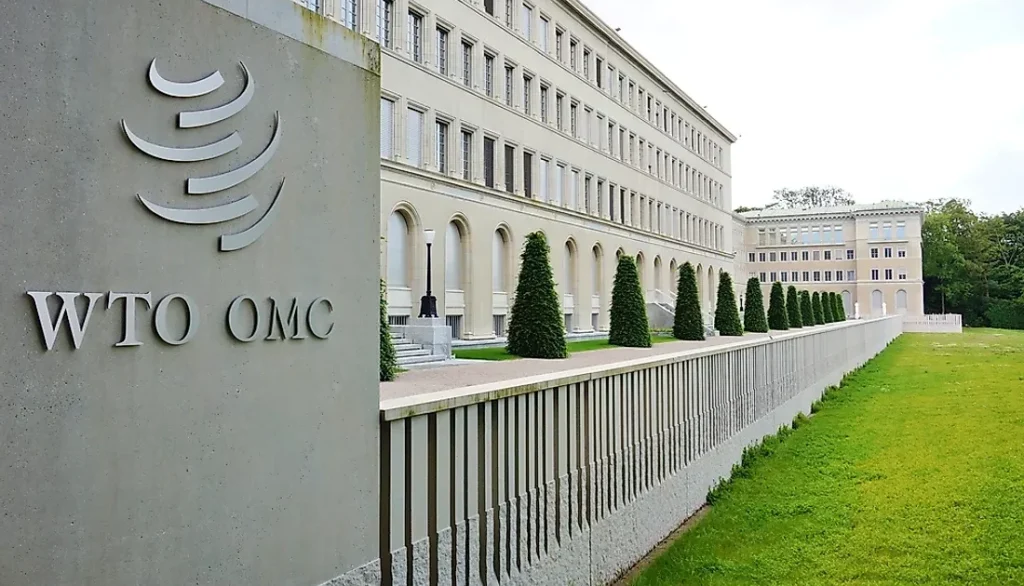Paragraph 1: Fostering Global Trade Expertise among Nigerian Entrepreneurs
The inaugural TradeConnect program, a collaborative effort between the World Trade Organization (WTO), Deutsche Gesellschaft für Internationale Zusammenarbeit (GIZ), and WTO Young Trade Leader Eric Andrew, launched in Lagos, Nigeria, with the aim of empowering young Nigerian entrepreneurs to navigate the complexities of global trade. This two-day intensive training program targeted 50 aspiring exporters, equipping them with the essential skills and knowledge to succeed in international markets, particularly within the framework of the African Continental Free Trade Area (AfCFTA). The program underscored Germany’s commitment to bolstering regional trade and nurturing youth entrepreneurship in West Africa, with GIZ playing a pivotal role through its ECOWAS AfCFTA Support Project.
Paragraph 2: Transforming Trade into Tangible Opportunities
TradeConnect served as a bridge between trade policy and practical application, providing participants with actionable tools and connections to access global markets. Bernard Tayoh, Head of Project for GIZ’s Support to ECOWAS in implementing AfCFTA, emphasized the transformative potential of trade, highlighting how the program translates policy into tangible opportunities for individuals. Eric Andrew, the driving force behind TradeConnect, articulated his vision of empowering Nigerian youth by localizing global trade knowledge and linking them with international prospects. He underscored the program’s message that Nigerian youth, with adequate support, can compete and thrive on the global stage. GIZ’s involvement exemplifies its dedication to strengthening regional value chains, dismantling trade barriers, and driving inclusive economic growth in Nigeria and the broader region.
Paragraph 3: Comprehensive Training Curriculum for Export Success
The TradeConnect curriculum offered a comprehensive range of training modules covering crucial aspects of international trade. Participants gained insights into international trade regulations, export branding strategies, trade finance mechanisms, digital tools for trade, compliance standards, and effective market access strategies. The second day delved deeper into specific trade agreements, including the AfCFTA, the African Growth and Opportunity Act (AGOA), and European Union trade frameworks. This multifaceted approach aimed to equip the entrepreneurs with a holistic understanding of the international trade landscape and the tools to navigate its complexities.
Paragraph 4: Empowering Agro-Entrepreneurs and Addressing Bottlenecks
The program’s impact resonated with participants, particularly those in the agricultural sector. Eze Mary, Team Lead of the agro-export startup FarmCAS, expressed her appreciation for the opportunity to connect with key stakeholders in the export industry. She highlighted the challenges faced by agro-entrepreneurs, including various bottlenecks hindering their progress. TradeConnect provided her with the knowledge and connections to overcome these obstacles and pursue export opportunities with greater confidence. This exemplifies the program’s targeted approach to addressing sector-specific challenges and empowering entrepreneurs in various industries.
Paragraph 5: A Model for International Cooperation and Youth-Driven Innovation
TradeConnect embodies the potential of international collaboration and youth-led innovation in unlocking Africa’s trade potential. By bringing together key stakeholders, including the WTO, GIZ, and ambitious young entrepreneurs, the program fosters a dynamic ecosystem for trade development. The initiative serves as a model for replicating similar programs across the continent, empowering African youth to become active participants in global trade and driving economic growth. The program’s success underscores the importance of targeted support and capacity-building initiatives in realizing the full potential of the AfCFTA and promoting intra-African trade.
Paragraph 6: Long-Term Impact and Sustainability
The long-term impact of TradeConnect lies in its ability to create a sustainable pipeline of export-ready entrepreneurs in Nigeria. By equipping young entrepreneurs with the necessary skills and connections, the program contributes to building a more robust and diversified economy. The program’s focus on youth empowerment ensures that the benefits of trade are distributed more equitably, creating opportunities for economic advancement and contributing to poverty reduction. Furthermore, the program’s emphasis on regional trade integration through the AfCFTA strengthens regional value chains, promotes intra-African trade, and fosters greater economic cooperation within the continent.














